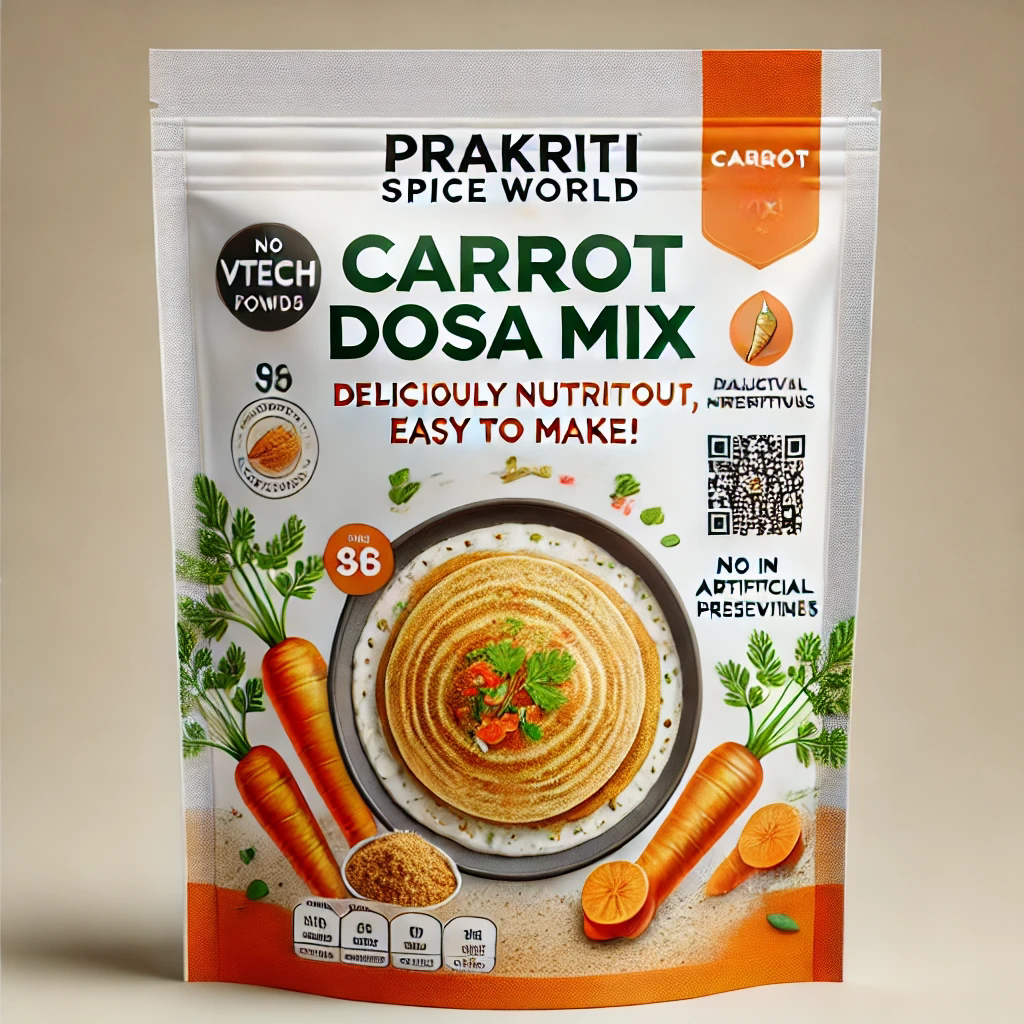Tips to check Adulteration in Food Products
Here. We will know about Adulteration in Food Products: How to Identify Adulteration in Spices and Refined Oil
Food adulteration has become a growing concern, particularly with vegetarian products such as spices and refined oil. Adulteration refers to the process of adding low-quality, harmful, or non-edible substances to food products, primarily to increase volume or enhance appearance, while compromising the quality and safety of the product. This practice not only diminishes the nutritional value of food but also poses severe health risks. In this blog, we will explore how adulteration occurs in vegetarian food products, especially spices and refined oils, and offer tips on how to identify adulterated products.
Common Forms of Adulteration in Food Products
1. Vegetables and Fruits: Chemical preservatives like calcium carbide are sometimes used to ripen fruits artificially. In some cases, vegetables are polished with wax or other chemicals to enhance their appearance.
2. Grains and Pulses: Grains and pulses are often mixed with stones, pebbles, or even artificial coloring agents to make them appear better in quality.
3. Milk and Dairy Products: Water, starch, and detergent are often added to milk to increase its quantity. Such adulteration poses significant health risks, especially to children.
Adulteration in Spices
Spices are among the most commonly adulterated food products. Given their importance in enhancing the flavor and aroma of vegetarian dishes, adulterating them with cheap substances or harmful chemicals can severely compromise the quality of meals.
1. Turmeric (Haldi)
Turmeric, known for its bright yellow color, is frequently adulterated with chemicals like lead chromate to enhance its yellow appearance. Lead chromate is highly toxic and can lead to lead poisoning, which can affect the brain, liver, and kidneys.
How to Identify Adulteration:
Take a small amount of turmeric powder and mix it with water.
If the water turns bright yellow and powder settles quickly, it is likely pure.
If the water shows a murky or oily layer, it may contain chemical additives or starch.
2. Chili Powder (Lal Mirch)
Chili powder is often mixed with brick powder or salt powder to increase bulk. Sometimes synthetic dyes like Sudan dye, which is carcinogenic, are added to enhance color.
How to Identify Adulteration:
Rub a pinch of chili powder between your fingers.
If it feels gritty, it may contain brick powder.
Mix some chili powder with water. If the red color dissolves quickly, it could be synthetic dye.
3. Coriander Powder (Dhania)
Coriander powder is often adulterated with sawdust or powdered stems of coriander. These adulterants reduce the natural flavor and can affect digestion.
How to Identify Adulteration:
Dissolve a teaspoon of coriander powder in water.
If it contains sawdust, it will float on the surface.
4. Cumin Seeds (Jeera)
Cumin seeds are sometimes mixed with grass seeds, which are colored with artificial dyes to mimic the appearance of real cumin seeds.
How to Identify Adulteration:
Rub cumin seeds on your palm.
If the seeds leave color stains, they are adulterated with artificial dyes.
Adulteration in Refined Oil
Edible oils are essential for cooking in vegetarian diets, but they are frequently adulterated to increase profits. Common adulterants include mineral oil, argemone oil, or mixing of different low-quality oils with higher-quality ones like mustard or olive oil.
1. Mustard Oil
Mustard oil is often adulterated with argemone oil, which can cause health issues such as dropsy and respiratory disorders.
How to Identify Adulteration:
Put a few drops of mustard oil on a white paper and expose it to sunlight.
If after a few minutes, oily stains appear yellow, the oil is pure. If it turns dark brown or black, it indicates adulteration with argemone oil.
2. Olive Oil
Olive oil is a premium product but is often mixed with cheaper oils like soybean or palm oil. This reduces its nutritional value and may cause allergic reactions.
How to Identify Adulteration:
Refrigerate the olive oil for 30 minutes.
If it solidifies, it’s pure; if it stays liquid, it may have been mixed with other oils.
3. Coconut Oil
Coconut oil, commonly used in South Indian vegetarian dishes, can be adulterated with paraffin wax or other cheap oils.
How to Identify Adulteration:
Place the coconut oil bottle in a refrigerator.
Pure coconut oil will solidify completely, while adulterated oils will remain partially liquid.
Health Risks of Adulterated Food Products
Toxins and Chemicals: The use of synthetic chemicals and dyes in spices can lead to poisoning, allergic reactions, and even long-term diseases such as cancer.
Digestive Issues: Adulterated oils can cause digestive disturbances, as well as liver and heart problems over time.
Nutritional Deficiencies: Adulterated products reduce the nutritional content of food, leading to deficiencies in essential vitamins and minerals.
How to Avoid Adulterated Products
1. Buy From Reputable Brands: Always purchase spices and oils from trusted brands that ensure quality control. Brands like Prakriti Spice World at Vtechfoods prioritize natural ingredients without any preservatives or artificial coloring.
2. Look for Certifications: Ensure the products are certified by organizations like FSSAI or ISO to guarantee that they meet safety and quality standards.
3. Test at Home: Simple home tests as discussed above can be a reliable way to check the purity of spices and oils.
4. Check the Labels: Read ingredient labels carefully. Avoid products that list artificial colors or chemicals.
Conclusion
Adulteration in vegetarian food products, especially spices and refined oils, is a serious issue that can harm both health and flavor. As consumers, we must remain vigilant and practice methods to test the purity of the products we consume. By choosing reputable brands like Vtechfoods, conducting home tests, and reading labels carefully, we can protect ourselves and our families from the dangers of adulteration. Stay informed and choose quality to enjoy healthier and safer food.
For more tips on identifying pure and safe food products, follow Prakriti Spice World on social media or visit the Vtechfoods website.




Comments
Post a Comment